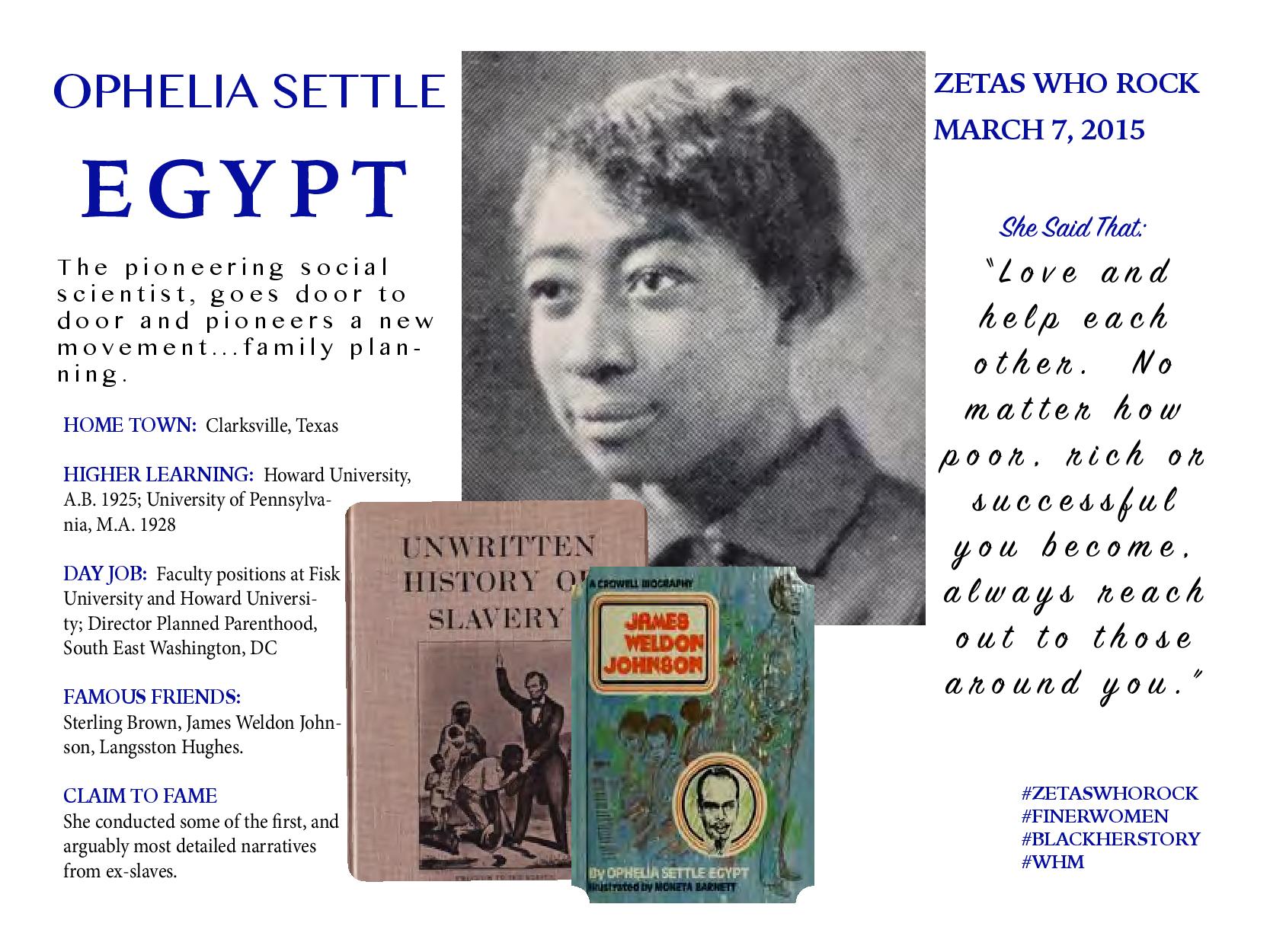

We continue to look at the legacy of Ophelia Settle Egypt, a pioneer in sociology.

Ophelia Egypt left a legacy for the future. In the early 1950s, Mrs. Egypt, a social worker in Southeast Washington, DC saw a problem in her community, and set out to solve it.
In 1952, Egypt became the executive director of the Ionia R. Whipper Home, one of the few homes for unwed African American teenage mothers in the Washington, DC area. She introduced innovative programs to bring knowledge of family planning to the city’s largely African American southeast neighborhood because she regarded reproductive control as essential to economic progress. She is best known for her pioneering work in the area of planned parenthood through her efforts at the Parklands Planned Parenthood Clinic in DC from 1956 – 1968.
In the neighborhood where she lived and worked, she often came in touch with impoverished mothers of large families. Many of them were hardly more than girls themselves, and they told her over and over that they felt that they had no options. They thought they’d never be able to obtain birth control information and services.

Mrs. Egypt thought otherwise. In 1956, Planned Parenthood hired her to bring family planning into her community. She did exactly that, with tireless commitment.
Mrs. Egypt went door-to-door, visited in living rooms, spoke at informal neighborhood gatherings, handed out literature at public housing projects, and reached out to others in every possible way. Singlehandedly and singlemindedly, she persuaded community leaders, including clergy, that family planning was a means of empowerment that gave women and men more control over their economic condition.
In 1957, Planned Parenthood of Metropolitan Washington opened the first private family planning clinic in Southeast Washington, DC, and for eleven years, Mrs. Egypt was its director. In 1981, three years before Mrs. Egypt passed away, the clinic was named for her. However due to budget constraints, the center was closed in 2014.
